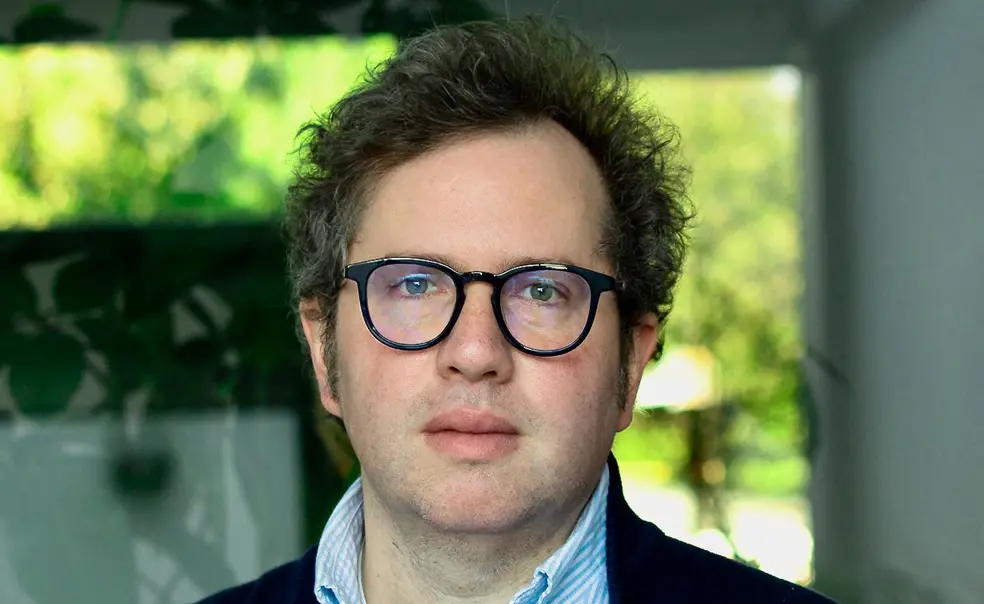Q&A: Adam Goldstein Discusses Social Impact of Trump’s Attacks on Higher Ed
As an organizational sociologist, Adam Goldstein researches the social consequences of financial capitalism
As the Trump administration has set its sights on higher education, the wide-ranging impacts from cuts, government probes, and more have been felt across Princeton’s campus. PAW spoke with Adam Goldstein — an associate professor of sociology and public affairs whose research examines the social consequences of financial capitalism for institutions, households, organizations, and inequality in the U.S. — about the social impact of these various policies.
What reactions have you observed in the Princeton community to the expected funding cuts?
There’s been a lot of I think confusion. A lot of these announcements have no concrete details. Some of them have been coupled with cuts and others with pauses. It might be an organized effort to sort of hang a guillotine over the head of higher education, but it’s not well organized. Some of these efforts are more clearly illegal than others, and in many cases that’s purposeful. It’s hard to argue against something where the legal basis for it is kind of obfuscated. All this confusion makes it more difficult to react especially when it’s not clear why certain research is being targeted as the justifications from the administration have to do with things like “woke science.”
Speaking as an organizational sociologist, a lot of the impacts we’ve seen are really coming less from the effect of the cuts and more from the uncertainty it’s created. We’ve already seen announcements of hiring freezes, which has created a lot of concern. I think to some extent there’s some paralysis going on because one thing about organizations is uncertainty is very difficult for them to work with. Having to wait and see has very real effects on our graduate students, for example, who are finishing up and trying to enter the academic job market and are quite concerned about whether there’s going to be any jobs available. So even if the funding cut is not finalized, the concern about it still has real effects on people now.
Can you give some examples?
A lot of research that people are doing, including our graduate students and postdocs, is concerned with issues of inequality, systemic racism, immigrant experiences, and disinformation. These are significant areas of research for our students, and so a lot of them are concerned about whether their area of research is going to be blacklisted in some capacity. That uncertainty that has real effect now is shaping how people are thinking about what research they might pursue and is undermining people’s confidence in the paths they’ve chosen from a scholarly perspective.
Beyond our local sphere here, I think there’s a lot of trepidation in the social sciences about what this means. One thing that President Eisgruber has written about more generally is the relationship between universities, the state, and government that’s really being fractured and tested. That could lead to some really serious restructuring of the role of research universities in society. I think most people who study the history of higher education agree that research universities in the U.S. are number one, not in a jingoistic sense, but largely due to the massive investments of federal research money in these institutions. I think there’s real questions about whether that persists.
How could these changes ultimately impact academic freedom?
I think that this has enormous implications for academic freedom. One is external censorship. Another that’s just as pernicious and probably an even more widespread response is self-censorship. You know, we always see this in autocratic regimes where people learn how to adapt and play the game as it were, within those constraints. I think that that is an enormous concern. I think that it's very tragic that the manner in which the Trump administration has attempted to sort of use these kinds of specious claims about widespread antisemitism, I think, on campuses, as a disingenuous pretext to try to pursue several cultural and ideological claims over control of higher education institutions.
Why are colleges being targeted?
This isn’t a new agenda, but it is being pursued now with a vengeance. I think the protests last year galvanized a lot of right-wing interest in the conservative movement in “taking back” universities.
Interview conducted and condensed by C.S.












No responses yet